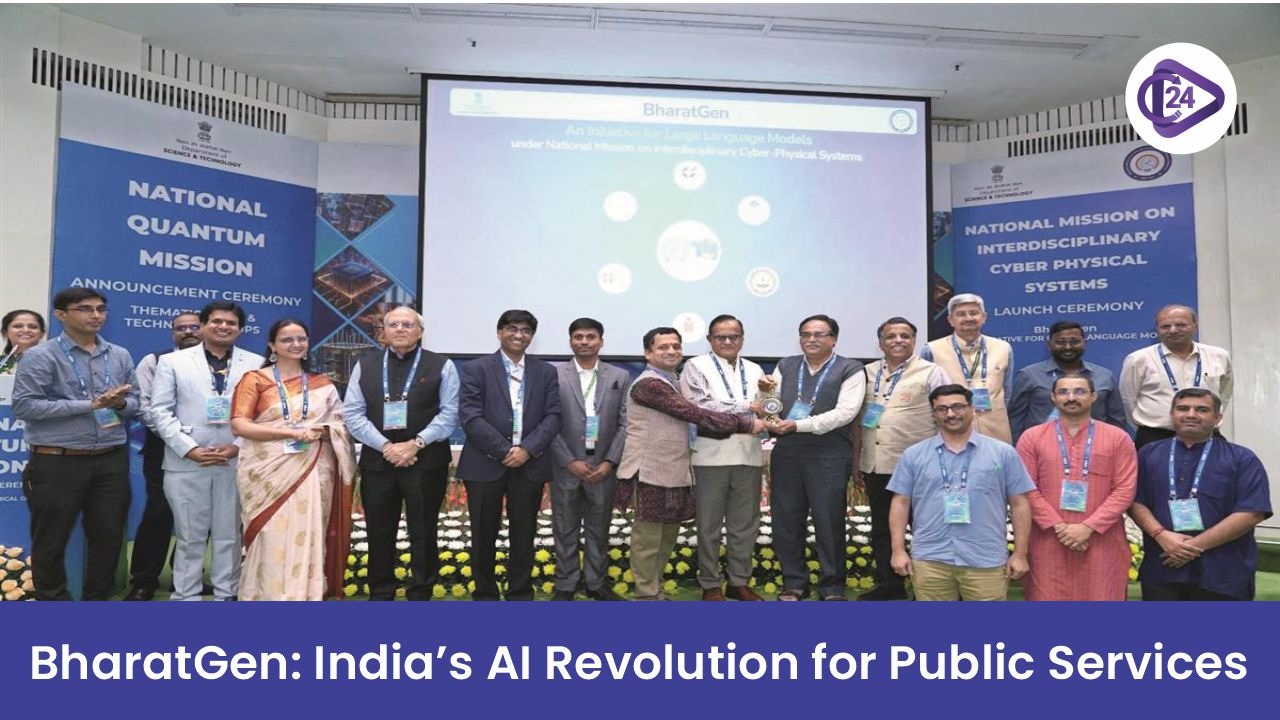
The Ministry of Electronics and Information Technology (MeitY) recently started discussions on the creation of the AI Safety Institute under the IndiaAI Mission to promote the use of artificial intelligence or AI. This is to address AI safety issues domestically and internationally, capitalizing on India and engaging partnerships worldwide. The programmes laid down is inline with Indian vision of AI and focus on safe, ethical and beneficial AI development and usage.
Background of the AI Safety Institute
It supports the emergence of the AI Safety Institute with India assuming more significant roles at international forums including G20 and the GPAI. Concerns about safety in Artificial Intelligence are emerging, and new topics such as bias, discrimination, and the ethical applications of Artificial Intelligence systems emerge.
Objectives of AI Safety Institute
-
Enhancing Domestic Capacity: It is essential to build the guidelines and standards which have to be followed while initiating the AI systems in India. Make sure that the technology has been properly implemented all over the country and ensures that applications of artificial intelligence technologies are properly applied.
-
Multi-Stakeholder Collaboration: Particularly, the related outcome is to encourage its participants to actively discuss with government bodies, industry, academia, and civil societies, as well as to investigate and involve them in the debates on the safe application of AI.
-
Data-Driven Decision Making: Healthcare, educational, and social welfare can benefit from using big data that AI analyzes to improve policy-making.
-
Human-Centric AI: A concentration on the impact of AI systems with respect for human rights and liberties and equally for developing countries.
-
International Collaboration: Join the Bletchley Process on AI Safety and the International AI for Global Good Processes to be involved in international table talks on AI safety.
Significance of AI Safety Institute
-
Innovation and Safety Balance: The discussions should be conducted to achieve a careful balance of encouraging development of new AI and creation of safe and ethical ones. However, such organisations should avoid the pitfall of constructing very rigid guidelines which could hamper innovation.
-
Global Leadership: India’s leadership can provide an opportunity for developing nations to be part of the formulation of AI governing policies globally hence being a boon to the country. Learning from Global Examples: Adapting from the EU AI Office and China’s Algorithm Registry among others to build a strong and malleable model of AI governance in India.
-
Ethical Oversight: Formulate AI best practices to prevent social issues such as discrimination, unfair treatment, and prejudice inherent with AI systems.
-
Privacy and Data Protection: Establish policies of data privacy and security in order to ensure that AI systems are compliant with these stricter rules.
-
Transparency and Accountability: It should increase the usage of open decision making by AI system with the aim of informing the public about how the system comes to its conclusions.
Strategic Initiatives:
-
National AI strategy: NITI Aayog named as National Strategy for Artificial Intelligence which aims at increasing the digital development and AI usage for social and economical development and at the same time implements ethics into concerns.
-
Ethical AI Frameworks: MeitY has produced guidance for ethical use of AI that has bias, fairness, and accountability in place.
-
Public-Private Partnerships: Summits such as the Responsible AI for Social Empowerment (RAISE) foster healthy dialogue in ethical application of AI across the markets.
-
Inclusivity Focus: Intended to help bridge the digital divide, the programmes for skilling and reskilling the workforce in AI as well as building solutions for the healthcare, agriculture, and education sectors are all set.
-
Research and Innovation: AI being a collaborative initiative of IITs and IISc, institutes ethical considerations in AI technologies as a top research priority.
Challenges of AI Safety Institute
-
Privacy Concerns:There arises issues of privacy because large quantities of personal data may be collected and processed for governance purposes.This requires compliance with strict data protection laws and good data protection practices in organizations.
-
Inclusivity and Accessibility: Make sure that the advantages of AI are received by the groups of population that need it most and that inequalities are minimized, all population groups being provided for.
-
Institutional Capability: Develop good institutional frameworks to regulate such systems while developing means to provide for updated governance measures to deal with emerging technological innovations.
-
Stakeholder Engagement: It is mandatory to involve implementation that consists of practical initiatives round industry specialist, policymaker, and civil society members together for AI’s multilayered governance.
-
Avoiding Overly Prescriptive Regulatory Controls: The AI Safety Institute should not concentrate too much on strict control of its members’ activities, hoping to prevent undesirable input from reaching them – instead, they should open channels of information exchange and cooperation.
-
Developing Adaptive Ethical and Regulatory Frameworks: This means that regulatory frameworks need to be kept up to date in proportion to the development of technology, as well as offering sufficient freedom in order to combat various new risks.
Conclusion
The establishment of the AI Safety Institute marks a significant step toward securely integrating AI technologies in India and globally. This initiative is poised to play a key role in mitigating AI-related risks and shaping the future governance of AI. By fostering domestic high-level academic research, encouraging multi-stakeholder collaboration, and engaging in international discussions, the institute will contribute to the development of safe and ethical AI practices. As India takes a lead role in the global AI landscape, the AI Safety Institute will be crucial in navigating both the opportunities and challenges that AI presents for the future.
Chat With Us



 BharatGen: Revolutionizing AI to Enhance India’s Public Service Delivery
BharatGen: Revolutionizing AI to Enhance India’s Public Service Delivery Preparations for Building ‘Viksit Bharat’ by 2047
Preparations for Building ‘Viksit Bharat’ by 2047 Space Exploration and Its Environmental Effect
Space Exploration and Its Environmental Effect Bharat 6G Mission: India’s Leap Towards Next-Gen Telecom Innovation
Bharat 6G Mission: India’s Leap Towards Next-Gen Telecom Innovation 10th World Ayurveda Congress (WAC 2024) and Arogya Expo in Dehradun
10th World Ayurveda Congress (WAC 2024) and Arogya Expo in Dehradun India's Digital Revolution: Transforming Infrastructure for Innovation, Inclusion, and Global Leader
India's Digital Revolution: Transforming Infrastructure for Innovation, Inclusion, and Global Leader PMSGMBY 10 Lakh Installations Target 1 Crore 2027
PMSGMBY 10 Lakh Installations Target 1 Crore 2027 ISRO PSLV-C59/PROBA 3 Solar Observations Launch 2024
ISRO PSLV-C59/PROBA 3 Solar Observations Launch 2024 Hyderabad Google Safety Engineering Centre Launch
Hyderabad Google Safety Engineering Centre Launch






